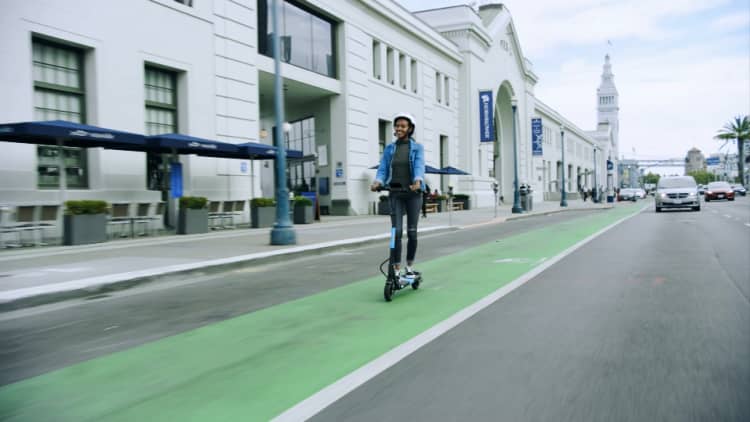More than four months after San Francisco removed electric scooters from the roads, they're finally back — but not exactly how we remember them.
Two start-ups, Scoot and Skip, dropped their kick scooters in San Francisco on Monday, after winning permits from the city to operate their vehicle fleets. Back when scooters flooded the sidewalks earlier this year, the companies responsible for the rush were Lime, Bird and Spin.
Those operators were so quick to get up and running that they did so without warning, angering city officials and residents. San Francisco responded by imposing a temporary ban, forcing any company that wanted to do business in the city to apply for a permit.
A dozen applied and only Scoot and Skip won licenses. Each are allowed over 600 scooters.
They're underdogs compared to Bird and Lime. Bird has raised over $400 million dollars and has a valuation of $2.1 billion. Lime has raised over $450 million dollars and is worth $1.1 billion dollars. Skip and Scoot have a fraction of that amount of funding, and are each in only three cities. (Scoot plans to launch in its third market —Santiago, Chile — later this week.)
Sanjay Dastoor, founder and CEO of Skip said his company's approach is to work with cities from the beginning to craft a program that works for regulators and residents.
"We tried to understand what San Francisco wanted both from the regulatory body perspective as well as stakeholders in the city," Dastoor said. "So when we submitted our application we tried to represent what we thought would be a program that served those stakeholders well."
Lime has openly expressed its displeasure with the results, appealing the decision in court and attempting to delay the roll-out.




